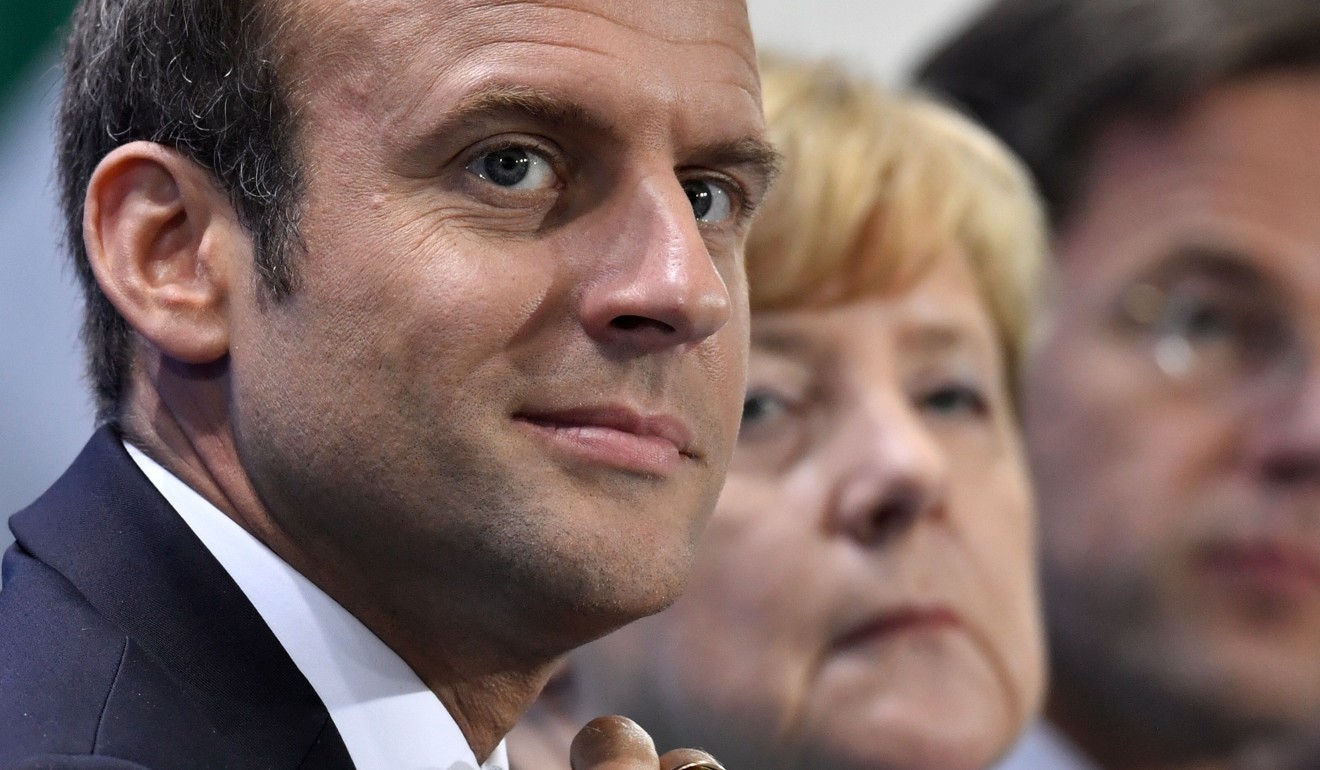
European politics hold the whip hand for the euro’s future
A combination of better politics, a stronger economy and recovery from the 2010-2013 European financial crises has made the euro a firm favourite with global investors
Politics can be a fickle thing. So too can confidence in a currency. The fortunes of the euro single currency have whipsawed between ‘zero and hero’ in recent years providing good volatility opportunities for global investors. That is, if you have been on the right side of the foreign exchange trade.
Believers in the euro recovery story have been rewarded aptly this year as the currency has been one of the best performing major currency bets in 2017.
The euro has risen over 12 per cent so far against the US dollar. A combination of better politics, a stronger economy and recovery from the 2010-2013 European financial crises has made the euro a firm favourite with global investors this year.
While the euro’s revival is well attested, it is important to remember the rally in the euro/dollar exchange rate from €1.04 (US$1.22) to €1.17 in the last 7 months has also been the flipside of US dollar sentiment in sharp retreat. The market’s patience in the so-called Trump Bump – the economic rally that was supposed to have been inspired by President Donald Trump’s much vaunted economic reforms – has finally run out.

Uncertainties over the Federal Reserve’s monetary policy rewind from super-stimulus to a tighter bias have also left the market in a deep dither about the dollar. While the euro has staged a remarkable comeback this year, the dollar’s popularity has taken a nosedive. Divergence has been at the root of relative performance, but can it be relied on to continue in future?
Judging by current perceptions the, euro bulls clearly have the upper hand right now and seem to expect more of the same in coming months. This is obvious in the wide margin of net speculative bets in the euro’s favour according to Commodity Futures Trading Commission data. At the moment, optimism looks consistent with a break upwards of €1.20-€1.25 at some stage soon.
The worry is confidence may be so over-pumped, risk reversals could kick in if the euro’s forward momentum suddenly flags, with so much already factored into relative US-Europe macro fundamentals.
Growth potential looks evenly matched, while expectations about future monetary policy moves are too finely balanced to make much difference. More vitality and incentive is needed for the rally to extend.
Challenging times are lurking ahead. Any hint that Macron’s presidency is coming off the rails will sound a death knell for the euro’s rally. If it happens, 2017 could prove to be the year of living dangerously for euro bulls.
It may be that politics in Europe and America begin to play a bigger hand. While Trump’s political star has definitely waned in recent months, in the market’s eyes, a more upbeat political picture has emerged in Europe to rally the euro’s cause. A bevy of positive election results in Italy, Holland and France has lifted hopes that the much-feared, anti-euro, populist backlash will fail to materialise in Europe.
The recent election of independent Emmanuel Macron as new French president seems to have marked a turning point in the market that Europe could be at the threshold of greater political stability. Macron has gone overboard to strengthen ties with Germany to provide a stronger backbone to European unity. But the market also wants to believe Macron can turn around France’s ailing economy too.
It is a tall order. Macron needs to pull off a minor miracle to bring the French economy back to better health. Underlying French economic growth looks stagnant around 1.5 per cent and that has only been thanks to the European Central Bank’s programme of negative interest rates and quantitative easing. Once that ends, doubts about France’s economic sustainability are bound to linger.
France has fallen a long way behind Germany in terms of productivity, competitiveness and budget performance and it is hard to see how these can be reconciled.
Before the introduction of the euro single currency, competitive shortfalls were bridged by occasional devaluations in the French franc. Now the only route left for French policymakers to bridge the gap is to squeeze domestic employment costs.
Macron’s proposed labour market reforms looking to boost labour productivity are already falling foul of France’s powerful trade unions and heading for trouble. And it is hard to reconcile Macron’s plans to cut taxes and boost spending together with slashing the budget deficit and reducing the government’s massive national debt burden, now running close to 100 per cent of GDP.
Challenging times are lurking ahead. Any hint that Macron’s presidency is coming off the rails will sound a death knell for the euro’s rally. If it happens, 2017 could prove to be the year of living dangerously for euro bulls.
David Brown is chief executive of New View Economics

